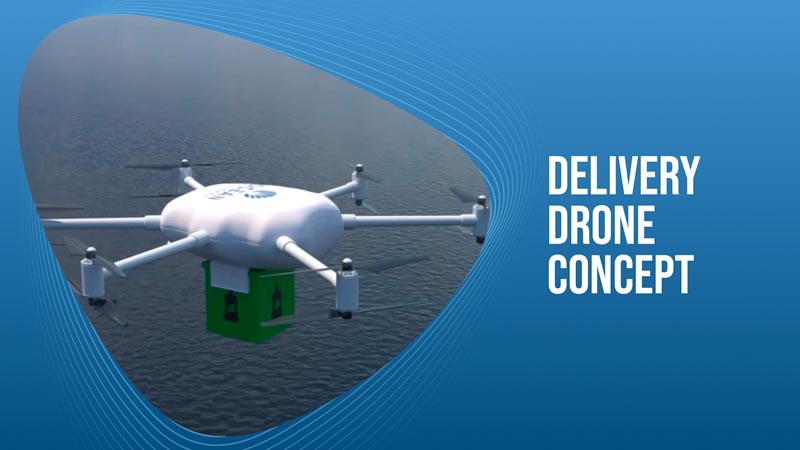
With the SeaPod being located in the water, some normal things that we do in traditional homes like taking the trash out or having food delivered become much less convenient. That is where our automated drones will come into play as a solution for this challenge.
The biggest hold-up with delivery drones is the fact that in most populated areas, the drones will need to fly above people. This poses a risk for those below the drone should the drone drop something or have a crash. This makes it very difficult to get approval to operate these systems. Luckily for us, we would be flying over water instead of people, which will be easier to have approved.
Our plan is to have a location for a landing pad on the SeaPod where an aerial drone can safely land to drop off or pick up a package. This could be anything from food deliveries, laundry service deliveries, package deliveries, medical supplies. Eventually, we would like to add trash, compost, and recycling to this as well.
One of the biggest challenges when it comes to aerial drones is the weight of the load. A heavier load will use more battery and reduce the range and speed of the drone. Additionally, if the drone drops the load, then we don’t want to be dumping trash into the ocean.
Our solution for this is to possibly start with an automated surface drone, basically, a small unmanned boat that can drive itself to your SeaPod and back. A small boat would be able to carry significantly more weight and be safer than an aerial drone. Our idea is to have a scale in your trash, compost, and recycling bins that will notify you, based on weight, when you should put your bin our for collection.
Using the surface drone, it would summon the drone to your SeaPod where it will pick up your waste and return it to land where it will be sent to the proper places. This will alleviate the weight concerns that come with aerial drones and keep the oceans cleaner.
Initially, we will likely start with the use of aerial drones for food delivery, medical supplies, and small items like documents or small packages. We will use the surface drone boats for heavier items that aren’t easily carried by our drones. As we implement these technologies and put them to use, we will be constantly learning and finding new ways to improve the efficiency and overall effectiveness of our drones.
We will have more updates about our automated drone delivery systems very soon so be sure to stay tuned for more updates in our blog!














